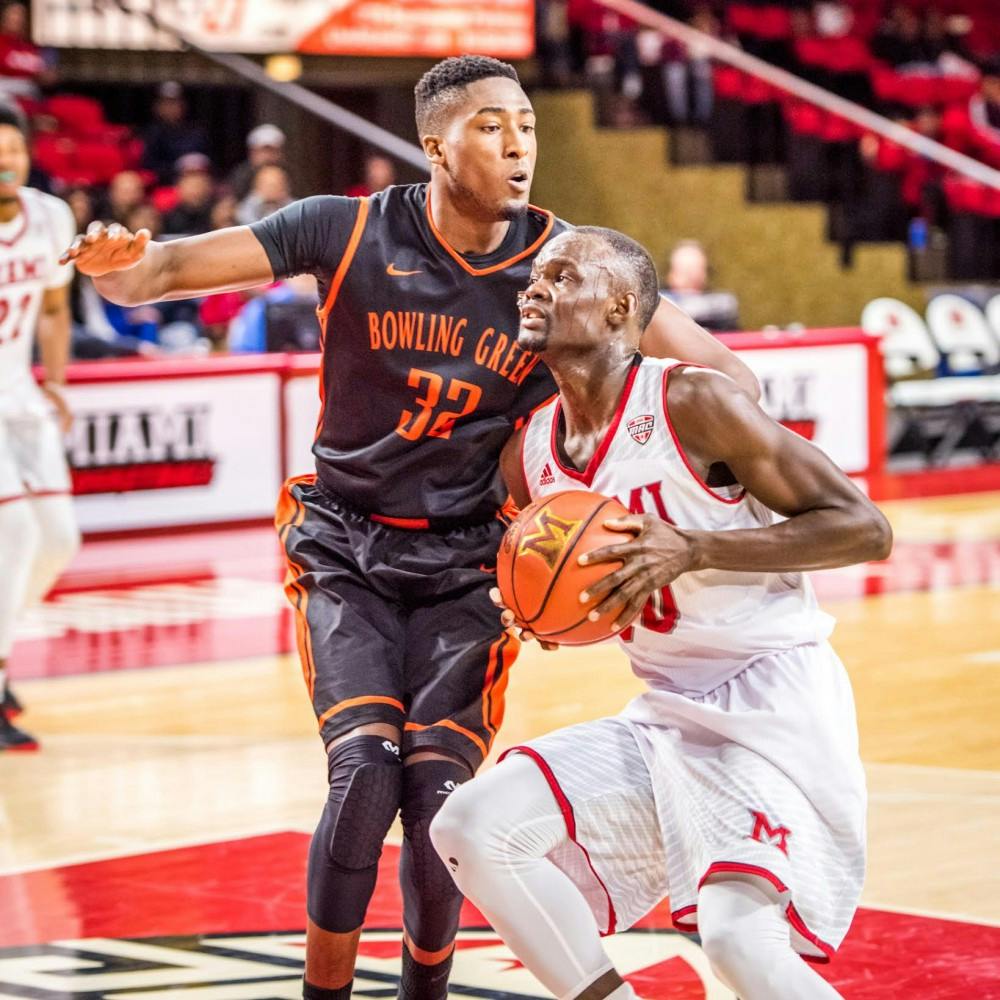A men's basketball player who was listed on Miami's 2017 roster was held up in his home country of Niger after his passport was revoked in a case of mistaken identity. Now back in Oxford, Abdoulaye Harouna will remain at Miami for another year, playing in the 2018-2019 season as a senior.
The international snafu kept Harouna grounded in his home country of Niger in western Africa, where he had gone during the summer break, he said.
On Aug. 21 in Niamey, the capital of Niger, U.S. officials told Harouna his student visa was temporarily revoked during a routine review of his passport, immigration status and university enrollment.
Harouna said he was shocked when U.S. embassy personnel told him they needed to validate that he was, in fact, a Miami University student-athlete and not a human rights activist of the same name sought by the Nigerien government.
According to the website of the organization Front Line Defenders, Abdoulaye Harouna is a "human rights defender" and member of ACTICE (the Association for the Defense of the Rights of Consumers to Information Technology, Communication and Energy). He and two other activists were reportedly arrested during a protest against economic legislation that would "drastically increase the cost of living for many of those already living in poverty," according to the site.
An email to Front Line Defenders requesting more information on the arrest went unanswered.
The basketball player said his name is common in Niger. Both Harounas reside in Niamey, lending to the confusion.
Mike Roth, assistant communications director for men's basketball, said the university tried to work with both the U.S. embassy and Nigerien government over this dispute but largely "left the situation alone."
Roth said the restriction on Harouna was out of Miami's control and there was nothing to do but let the government proceed with its protocol. Miami's efforts in speeding up the process of getting Harouna back to the States included constant communication between the university council, U.S. Embassy and Nigerien government, he said.
Harouna said the incident left him surprised and angry.
"When they saw everything was okay, they told me my visa is approved but that they can't give it to me right away until they verified that I wasn't the guy they were looking for," he said. In his 10 years of playing basketball on a student visa, this was the first time he ran into immigration issues.
Enjoy what you're reading?
Signup for our newsletter
Miami athletic officials had not revealed the cause of Harouna's abrupt disappearance and his name remained on the roster during the fall season. In January, the team announced Harouna had reenrolled and would be able to play out his senior season in fall 2018 instead.
For Harouna, the real frustration came from worrying that his career in basketball was in jeopardy. NCAA rules allow only four seasons of competition, of which the 2017-18 would have been his last. By the time the United States released Harouna from limbo, the season was well under way and Harouna was unable to rejoin the team.
But the saga ended well. Upon Harouna's return, Miami University athletics worked to arrange to give Harouna back his final season of competition. Katherine Lawrence, academic coordinator for men's basketball, said Harouna received a "missed-term exemption ... only granted in cases of missing a semester due to circumstances out of his control."
Harouna intends to use this opportunity as motivation to be drafted into a professional league.
tranhm@miamioh.edu




